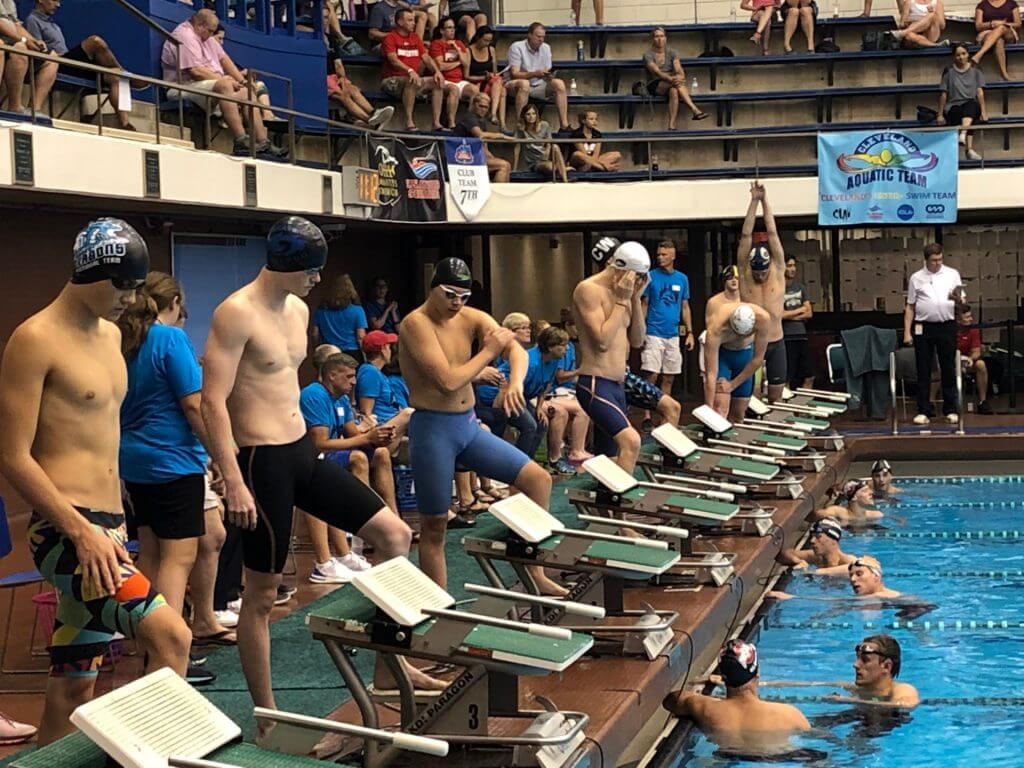Anxiety and HRV in Competitive Swimming Performance

Anxiety and HRV in Competitive Swimming Performance
By Vanessa Steigauf, Swimming World College Intern
That tense feeling right before you get on the blocks is something many swimmers experience prior to their races. You get a little shaky, thoughts begin to race, you nervously jump up and down. Partly to warm up your muscles, partly to shake off some of the tension that is accumulating way too fast in the moment. Hopefully, once you are on the blocks and jump in the water, the tension washes off as you break the surface of the water and you’re simply focused on your race. But what if too much of that tension builds up before your race? What if you cannot stay calm enough to focus and the little nervousness develops into full blown anxiety?
It is not a rare occasion for athletes to get nervous before their races. But how does this extensive anxiety affect your swimming performance? Scientists have taken a look at what effects performance anxiety has on heart rate variability (HRV), one of the crucial factors of endurance performance.
What Is Heart Rate Variability?
Heart rate variability, or HRV, is one of the measurements for autonomic nervous system activity. It is often used to analyze an athlete’s endurance level. In detail, HRV describes the variation in the time interval between consecutive heartbeats. You might be able to notice that variability by feeling your pulse on your wrist and comparing the heart rate when you are inhaling vs. when you are calmly exhaling. Endurance training has a positive effect on HRV. A higher HRV is, therefore, common in athletes and generally healthy and fit individuals.
The Role of Your Nervous System
Because HRV is controlled by the autonomic nervous system, it can fluctuate in response to stress or relaxation. Your autonomic nervous system is comprised of two subunits. On the one hand, there is the sympathetic nervous system. It is responsible for the fight, flight or freeze response in stressful situations. On the other hand, there is its antagonist, the parasympathetic nervous system. This one is active when you calm down and get to rest. While the sympathetic nervous system decreases HRV in stressful situations, the parasympathetic branch increases HRV to generate overall homeostasis.
What Happens When You Get Anxious?
Nervousness and anxiety activate the sympathetic nervous system. You feel like there is an immediate threat and your body reacts with a stress response. This situation doesn’t only increase your heart rate, blood pressure, and respiration. It also increases HRV. All of the sudden, your HRV isn’t as nice and low as it might typically be for an athlete. It rises to a level that can disrupt your performance. Researchers that looked at anxiety levels, HRV and performance in top-level 400-meter freestyle swimmers found that there is actually a correlation between those parameters. This correlation suggests a negative effect of nervousness on HRV and, therefore, on performance.
How to Deal With Nervousness in a Race?
Generally, nervousness isn’t entirely a bad thing. It might decrease HRV which can have a negative effect on your performance, but it can also have positive effects on your race. Your performance is best when you have the right levels of activation for both nervous system branches. Too much relaxation before a race is just as impeding for your performance as excess anxiety. To reach your peak performance level, nervousness and relaxation, and the sympathetic and parasympathetic nervous systems, have to play together to give you just the right amount of tension that allows for perfect focus and power to master your race.
Anxiety During Practice
Anxiety and nervousness aren’t the only topics that concern competitions and racing. A lot of athletes feel pressured and nervous during practices as well. If anxiety levels are relatively high throughout a longer period of time, this can have several negative effects not only on an athlete’s performance and fitness level, but also on general health. Despite regular endurance training, an athlete’s HRV can become higher than usual. This will have long-term effects like worsened performance and fatigue. Furthermore, levels of the stress hormone cortisol increase which will keep the body in a constant level of alertness and can finally lead to a burned out feeling.
How To Cope With It
To avoid performance anxiety and general nervousness in your swimming performance, it is crucial to find a place where your body can train hard and stay healthy. You might realize there are stressors during practice or competitions that can unnecessarily increase your arousal level and cause anxiety. At this point, you can try some of the many helpful strategies to conquer nervousness. That way you can make sure you’re prepared for the next competition, and able to handle the rollercoaster of emotions that might arise once you are standing behind the blocks.
All commentaries are the opinion of the author and do not necessarily reflect the views of Swimming World Magazine nor its staff.




Hi – This interpretation of how HRV affects *performance* is new to me. Can you give the reference to the study cited.
Thanks